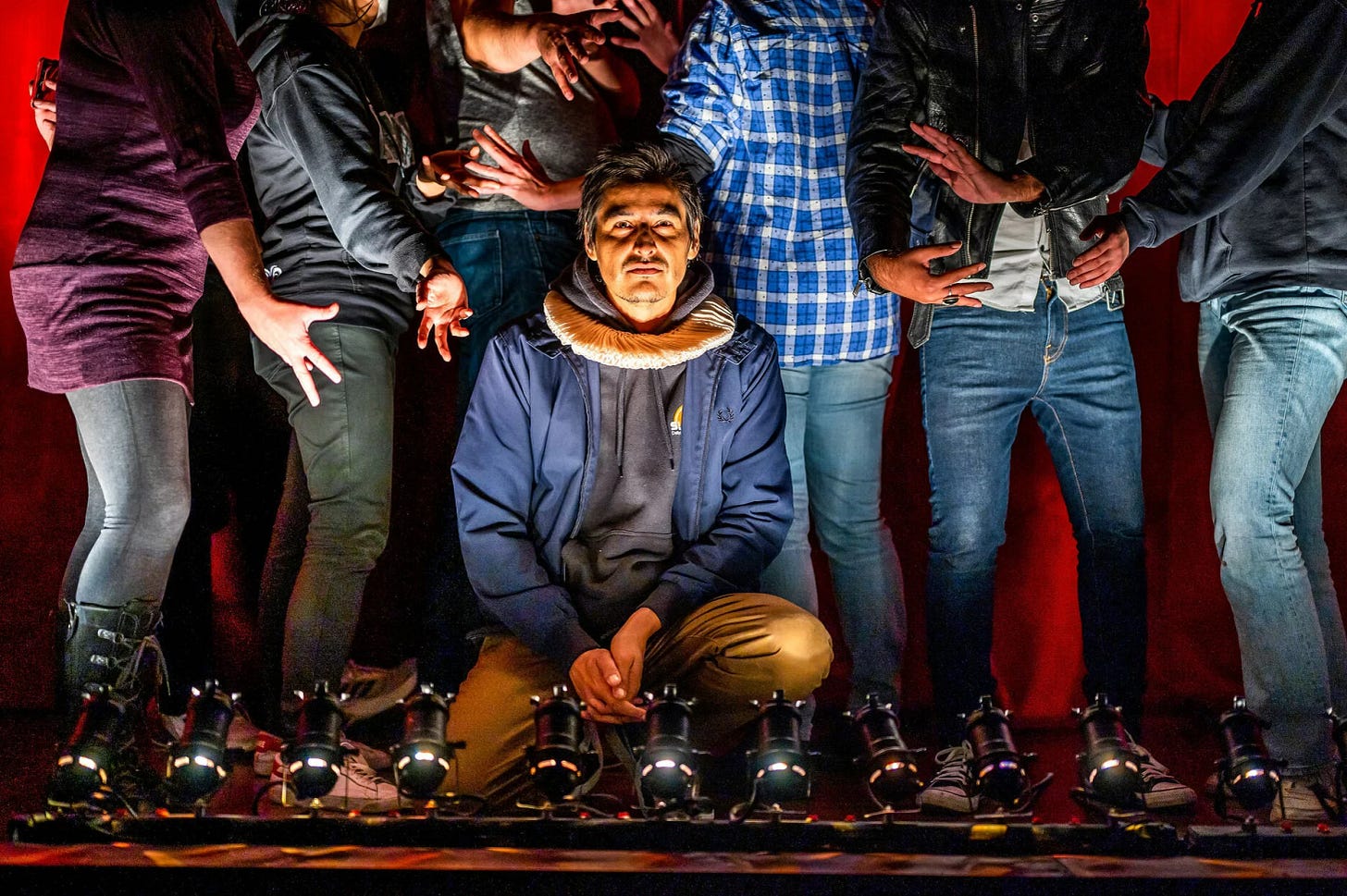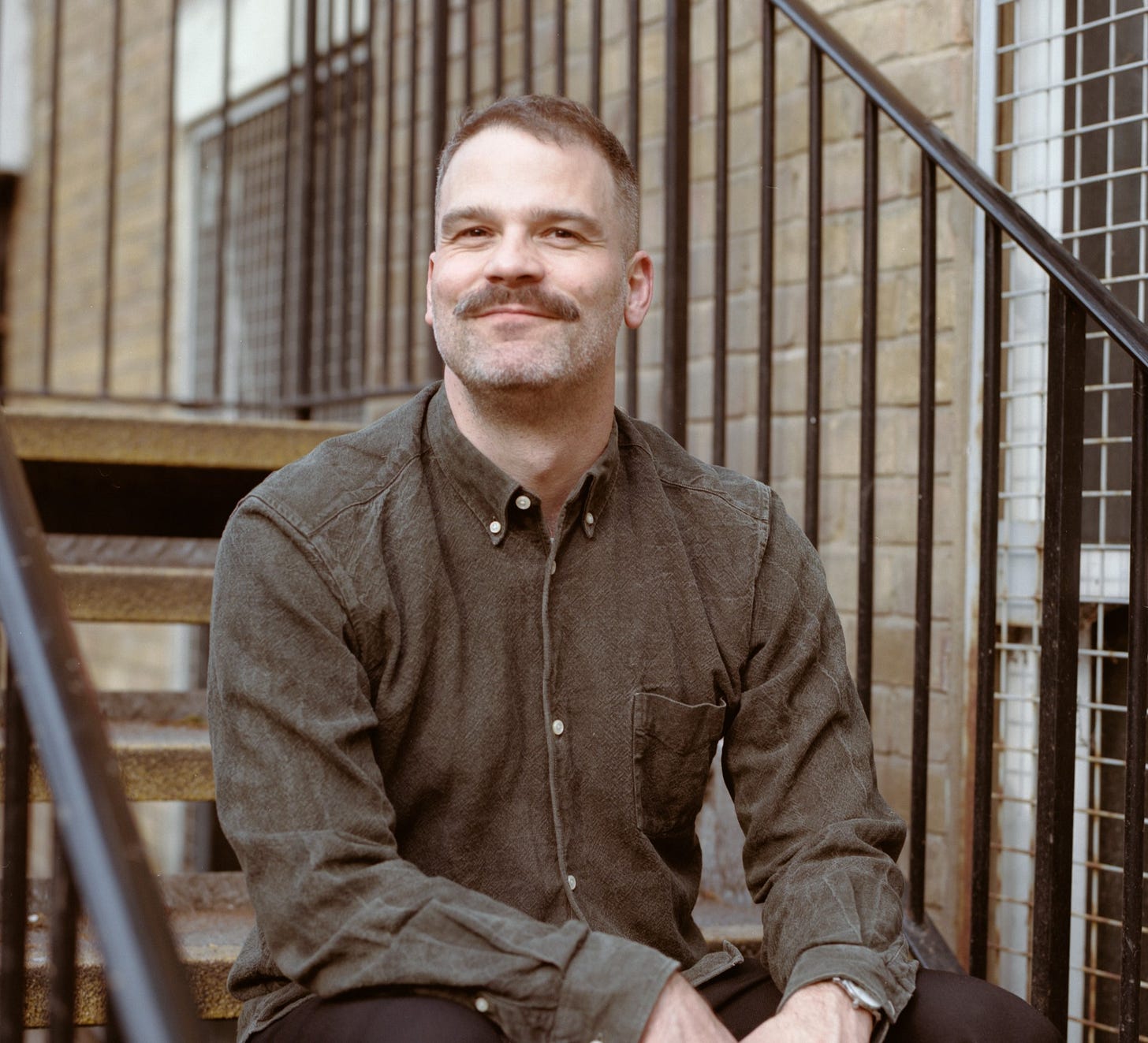A window to the world: An interview with Kris Nelson, artistic director of LIFT
On the form-straddling programme of this year's London International Festival of Theatre
Welcome to Café Europa, a weekly newsletter dedicated to European theatre.
Last week I wrote this piece for BBC Culture about Dark Star, John Carpenter’s debut, and how this super low-budget student film went on to become a sci-fi classic and have a lasting impact on the genre. (I know this is not theatre related but it did allow me to interview Red Dwarf co-creator Doug Naylor, which was pleasing).
For this bonus Monday edition of the newsletter, I had a chat with Kris Nelson about what to expect from this year’s London International Festival of Theatre, the challenges of programming an international festival and the current state of the UK arts ecosystem.
This a bonus edition for my growing pool of paid supporters. If you want to join their number that would be lovely. The newsletter is a joy to write, but it is a lot of work. However I’m well aware that things are tight right now, so if you do want to read the full version, just drop me a line.
Founded in 1981 by Rose Fenton and Lucy Neal, the London International Festival of Theatre (LIFT) has been bringing international artists to the UK, presenting audiences with form-straddling and experimental work. In venues across the city, audiences can see performances as well as work that is less easy to categorise.
Over the years, the festival brought Robert Lepage and Romeo Castellucci to the UK. It brought Elevator Repair Service’s mighty Gatz to the West End. It’s programmed Lola Arias, Belarus Free Theatre, Lies Pauwels and Anna Deavere Smith. It’s played host to all manner of challenging, form-stretching, occasionally downright weird and often wonderful work.
LIFT has changed shape over the years but currently has a biennial format. It’s also smaller in terms of the amount of work it programmes than it has been in the past, but it’s no less ambitious in the kind of work it's bringing. The 2024 programme, which consists of seven shows and an evening of debate spread across almost two months from 5th June-27th July, features artists from Canada, Taiwan, Ivory Coast, France, Italy, Cape Verde, Portugal, Brazil, Iran and Palestine.
Kris Nelson was appointed artistic director and CEO of the festival in 2018. He started out as part of the artistic team of the Magnetic North festival in his native Canada, before moving to Dublin in 2013 to run the fringe festival there. The pandemic unfortunately put the brakes on his first full festival programme, so the 2022 festival was the first one in which he got to present his vision. (This fantastic profile by Kate Wyver in The Stage explores his journey in more detail).
There are two loose thematic strands to this year’s LIFT: ‘Play the Future, Play the Past’ and ‘The Personal is Epic’, the latter is especially true for the opening show of the festival, Cliff Cardinal’s The Land Acknowledgement or As You Like It. Billed as a radical reworking of Shakespeare’s comedy when it premiered in Toronto in 2021, Cardinal, a Cree and Lakota playwright and actor, presents audiences with something different and expectation-defying.
Land acknowledgement is part of the reconciliation process in places with an indigenous population. “Before every public event, every public organisation will have some kind of land acknowledgement, acknowledging either the treaty or non-treaty status of the lands in which they work, or, in Australia, the custodians of the land,” explains Nelson. At the same time, he adds, there are occasions when it can feel like little more than a formality, like a reminder to switch off your phones.
Cardinal’s show explores and unpacks this practice. “I think there are things within this piece that will correspond with conversations that we're having here around colonialism and the slave trade, the impact of the empire on the rest of the world,” says Nelson. “He keeps the piece very fresh, by including a lot of things that are contemporary. The show plays with tropes of white guilt, with the tropes that get projected on indigenous actors and characters in film. It's very funny. It's very scathing. It's very brave.”
“My home town is a location in the play”
It's also a very personal piece for Nelson to programme. “It’s the first Canadian work I’ve programmed in LIFT. I come from Saskatoon, a city in Saskatchewan, in the middle of the prairies. My hometown is a location in the play, but not in a good way. So there's a direct reconciling to do there, which is part of the Canadian project of reconciliation- how home made by some has meant harm for others.”
Collaboration is at the core of a lot of the 2024 programme. The Trials and Passions of Unfamous Women, a show about what “happens women transgress in society,” which pairs Brazilian theatre makers Janaina Leite and Lara Duarte with UK company Clean Break, which makes work about and with women with experience of the criminal justice system. It’s Clean Break’s first time collaborating with an international company. Internationalising local practice is part of LIFT’s mission, says Nelson.
“We're continuing to experiment with form,” he says, and choreographic work plays a big part in the programme. Nelson is clearly psyched to be bringing Cape Verdean choreographer and performer Marlene Monteiro Freitas to London with Bacchae: Prelude to a Purge. “She’s got this cult following. She’s a real master maker in Europe,” says Nelson who describes himself as a bit of a fanboy ever since he saw her do an impersonation of Prince in one of her earlier pieces. Bacchae is “equal parts ritual, exorcism and carnival,” he says, “it’s like a rocket to the top of your spine.”
The programme also includes Nadia Beugré’s L’Homme rare, a piece about the exoticisation of the Black make body. “Her work has a great sense of humour. She's really mischievous and a little bit punk, but it also has a real dark edge” says Nelson. There’s also L’Animale by Chiara Bersani, the Italian performer’s take on The Dying Swan, which she performs on a plinth inside the Old Bailey. “She’s dealing with the dance canon and what it means to be in her body, as a disabled artist,” says Nelson.
Bat Night Market, a piece by UK artist Robert Charles Johnson and Taiwanese artist Kuang-Yi Ku, is much harder to pin down in terms of category, or slot into any one box. Mixing elements of bio-design with performance, the piece is set in a fantasy night market of the future in which bats are extinct. It invites audiences to think about food sources, about what we eat and what we might need to eat in the future, and how this all overlaps with ideas of disease, dis/taste and disgust. “We've got an amazing team of designers working with Borough Market favourites BAO to imagine some hopefully mouth-watering food of the future” says Nelson, before adding how much he likes the fact that, with LIFT, they’re able to draw artists from different practices and backgrounds into the theatre festival world, while at the same time stretching themselves as presenters and programmers.
The festival’s closing show, ECHO (Every Cold-Hearted Oxygen) sees writer Nassim Soleimanpour and director Omar Elerian team up again for a piece about home, exile and the condition of being an immigrant.
When Soleimanpour was living in Iran, his play White Rabbit Red Rabbit, which was written to be performed sight unseen by a different performer every night, became an international hit with John Hurt and Whoopi Goldberg among those who performed the piece. NASSIM, which Elerian directed, did something similar - Chris Thorpe did the honours on the night I saw it. ECHO, which will have its world premiere at the Royal Court, will continue to draw on Soleimanpour’s experiences - he’s now living in exile in Berlin - while apparently taking this unrehearsed and unprepared approach to the next level.
In this respect, while not as absolutists as, say, Katie Mitchell’s no-flying stance, ECHO can be looked at as part of an ongoing experiment in a new ways of touring and performing work. “Nassim and Omar are some of the OG makers in this regard,” says Nelson.
Sustainability is something about which Nelson, as the artistic director of an international festival, is very mindful. How do you square the travel requirements of a festival like LIFT with the realities of the climate crisis? What balance do you strike?
Keep reading with a 7-day free trial
Subscribe to Café Europa to keep reading this post and get 7 days of free access to the full post archives.






